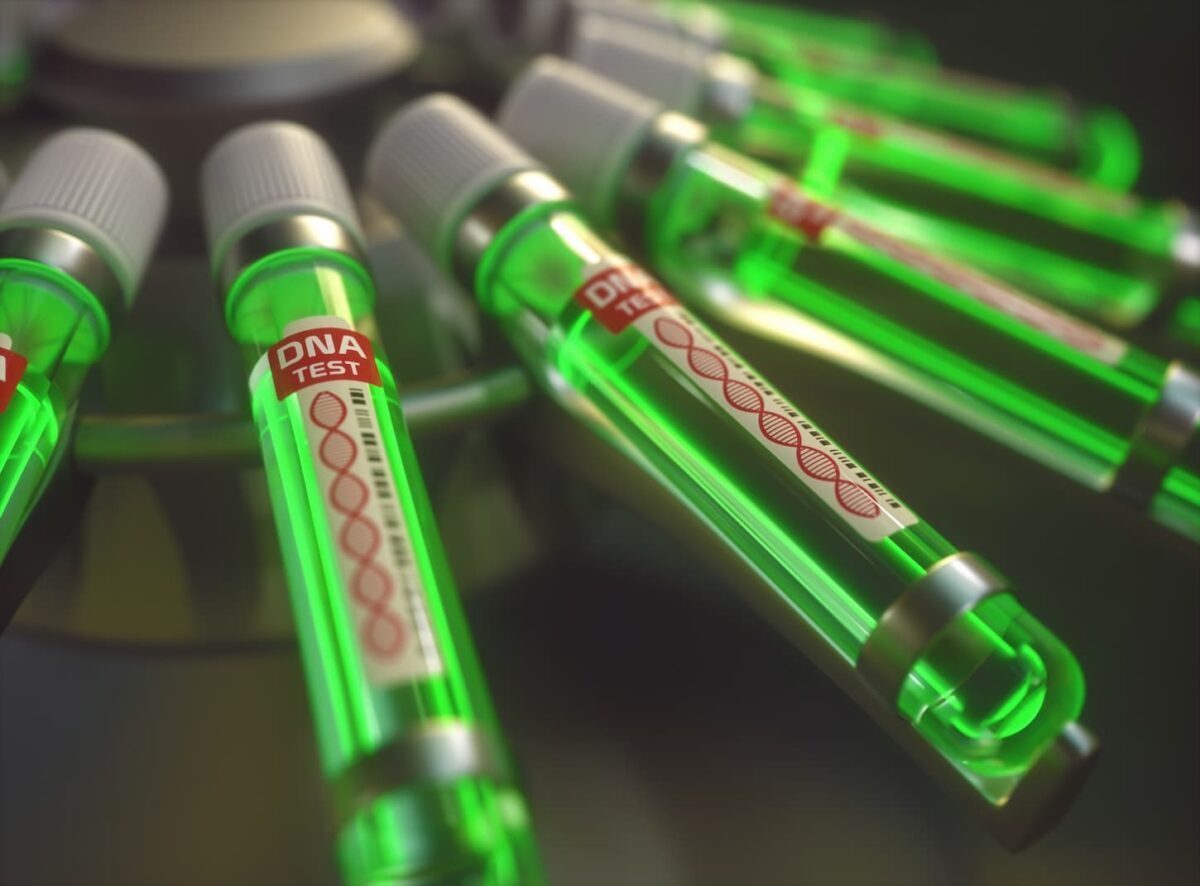If you’re considering taking a DNA test or have already taken one, it’s important to understand the emotional impact the results can have on you and your loved ones. DNA testing has become increasingly popular in recent years, with companies offering a variety of tests that can reveal information about your ancestry, health, and genetic makeup.
While DNA testing can provide valuable insights into your personal history and health, it can also uncover unexpected or upsetting information. For example, you may discover that you have a genetic predisposition to a certain disease or that you have relatives you didn’t know about. These revelations can be difficult to process and may significantly impact you and your family.
It’s important to approach DNA testing with an awareness of the potential emotional risks and benefits. By understanding the implications of the results and preparing yourself for possible outcomes, you can make an informed decision about whether or not to take a DNA test and how to handle the results.

The Science of DNA Testing
If you’re considering DNA testing, it’s important to understand how it works and the different types of tests available. Here’s a brief overview:
How DNA Testing Works
DNA testing involves analyzing specific regions of your DNA to look for variations that can provide information about your ancestry, health risks, or other traits. The process typically involves four steps:
- Sample Collection: You’ll provide a DNA sample by spitting into a tube or swabbing the inside of your cheek. Some tests may require a blood sample.
- Isolation: The DNA is extracted from your sample and purified.
- Analysis: The DNA is analyzed using various techniques to look for specific variations.
- Interpretation: The results are interpreted by comparing them to databases of known genetic variations or by using algorithms to predict your ancestry or health risks.
Types of DNA Testing
There are several types of DNA tests available, each with its own strengths and limitations:
| Type of Test | What it Can Tell You | Limitations |
|---|---|---|
| Ancestry Testing | Provides information about your ethnic background and ancestry. | May not be able to identify specific countries or regions of origin. |
| Health Risk Testing | Can identify genetic variations that increase your risk of certain diseases. | May not be able to predict your actual risk, as many factors can influence disease development. |
| Paternal or Maternal Lineage Testing | Can identify your direct paternal or maternal ancestors. | May not be able to identify more distant ancestors or siblings. |
| Forensic Testing | Can be used in criminal investigations to identify suspects or victims. | May not be able to provide conclusive evidence on its own. |
It’s important to choose the right type of test for your needs and understand the results’ limitations. Consulting with a genetic counselor or healthcare provider can help you make an informed decision.

The Emotional Impact of DNA Testing
Typical reactions to DNA test results include shock, astonishment, worry, and loss or confusion. It is important to remember that these emotions are normal and valid. You may feel overwhelmed by the information you receive and need time to process it.
When you decide to take a DNA test, you may not fully realize the emotional impact it can have on you and your loved ones. The results of a DNA test can be surprising, revealing previously unknown information about your family history, health risks, and genetic makeup. These results can have a significant impact on your emotional health and relationships.
One of the most significant emotional impacts of DNA testing is the potential to uncover family secrets. DNA testing can reveal previously unknown relatives, including half-siblings, cousins, and biological parents. This information can be both exciting and overwhelming and may require careful consideration and communication with family members.
DNA testing can also reveal health risks you may not have known about before. Learning that you have an increased risk for a particular disease can be scary and may cause anxiety about your future health. It is important to seek support from loved ones and healthcare professionals to help you understand your risk and develop a plan for managing your health.
Overall, DNA testing can have a significant emotional impact on you and your loved ones. It is important to take time to process your results and seek support from those around you. Remember that you are not alone and that resources are available to help you navigate the emotional impacts of DNA testing.

Coping with Unexpected Results
If your DNA test results reveal unexpected information, it is important to give yourself time to process your emotions and seek support from loved ones or a mental health professional if needed.
It is also important to remember that you have control over how you choose to respond to the information revealed by your DNA test results. You are not alone in this experience, and resources are available to help you cope.
One of the first steps in coping with unexpected DNA test results is to seek support from loved ones, friends, or a professional counselor. Talking about your feelings with someone who can listen and support you can help you process your emotions and come to terms with the results.
It is also important to take care of yourself during this time. This may involve engaging in self-care activities such as exercise, meditation, or spending time in nature. It may also involve seeking professional mental health support to help you work through your emotions and develop coping strategies.
Another important step in coping with unexpected DNA test results is to consider the impact of the results on your relationships with family members. Depending on the nature of the unexpected results, you may need to have difficult conversations with family members about the implications of the results for your relationship.
It is important to approach these conversations with empathy and compassion and to seek support from a counselor or mediator if necessary.
Finally, it is important to remember that DNA test results do not define your identity or relationships. While the results may be surprising or unexpected, they do not change the love and connection you share with your family.
It may take time to process your emotions and adjust to the new information, but with support and self-care, you can navigate this experience and come out stronger on the other side.

Impact on Family Dynamics
When it comes to DNA testing, the impact on family dynamics can be significant. The results of a DNA test can reveal unexpected family relationships, such as half-siblings or unknown biological parents. This can be a shock to individuals and can potentially disrupt family dynamics.
It’s important to approach these situations with sensitivity and understanding. Emotions can run high, and it’s important to take the time to process the information and communicate openly with family members.
Another factor to consider is the potential for genetic health risks to be revealed through DNA testing. This information can be difficult to process and may lead to anxiety or fear for individuals and their families. It’s important to seek support from healthcare professionals or genetic counselors to help navigate these concerns.
On the other hand, DNA testing can also positively impact family dynamics. It can bring family members closer together and provide a sense of connection and understanding. It can also help individuals learn more about their family history and cultural heritage.
Overall, the impact of DNA testing on family dynamics can be complex and emotional. It’s important to approach the process carefully and seek support when needed.
Psychological Impacts of Genetic Testing
The potential psychological impacts of genetic testing are real and need to be weighed for individuals and families. Genetic information’s personal and permanent nature can raise a range of emotions, including guilt, fear, and helplessness.
Studies have shown that receiving genetic risk information can lead to anxiety, distress, and depression, particularly when the results are perceived as harmful or lacking explanation or discussion. However, it is important to note that the psychological impacts of genetic testing can vary widely depending on individual circumstances.
It is recommended that individuals who are considering genetic testing receive counseling from a qualified genetic counselor or mental health professional. Counseling can help individuals understand the potential psychological impacts of genetic testing and develop strategies to cope with any negative emotions that may arise.
It is also important to involve family members in the genetic testing process, as test results can affect the entire family. Genetic counselors and psychologists can work with families to ensure that all members have a realistic understanding of the potential implications of genetic testing and to support any emotional reactions.
Psychological Impacts of Genetic Testing on Children
Genetic testing can have a significant impact on children’s psychological well-being. According to a systematic review published in Nature, children who receive genetic information may experience increased anxiety, distress, and worry about their future health.
When discussing genetic testing, it is important to consider the child’s age and developmental stage. Younger children may not fully understand the implications of the test results and may need additional support from parents and healthcare providers.
Parents should also consider the potential impact of genetic testing on their relationship with their children. A study published in Frontiers in Genetics found that parents who received positive genetic test results for their child were more likely to experience feelings of guilt and responsibility for their child’s health.
Genetic counselors and psychologists can play a crucial role in supporting children and families through the emotional impact of genetic testing. They can provide education and counseling to help children and parents understand the test results and cope with emotional reactions.

Ethical Considerations
There are several ethical considerations to remember when it comes to DNA testing. These include (but aren’t limited to) privacy concerns and informed consent.
Another concern is related to DNA-based forensics, but that’s a big enough topic that it needs a whole article of its own: What is Forensic Genealogy? 5 Things to Know Now.
Privacy Concerns
One of the biggest ethical considerations surrounding DNA testing is privacy. When you take a DNA test, you give a company access to your genetic information. This information can be incredibly personal and sensitive, and it’s important to understand who has access to it and how it will be used.
Before taking a DNA test, it’s important to carefully read the company’s privacy policy. Make sure you understand what information will be collected, who will have access to it, and how it will be used. Some companies may share your information with third parties, so knowing exactly where your data is going is important.
Informed Consent
Another important ethical consideration is informed consent. When you take a DNA test, you should be fully aware of what you’re getting into. This means understanding how your genetic information will be used and who will access it.
Before taking a DNA test, understand the potential risks and benefits. For example, you may learn information about your health that you weren’t aware of before. While this can be helpful, it can also be stressful or traumatic. Make sure you’re prepared for any potential outcomes before taking a test.
It’s also important to understand that DNA testing can affect your family members. For example, if you learn that you have a genetic predisposition to a certain condition, your family members may also be at risk. Make sure you understand how your results may impact your loved ones.
Seeking Support
Undergoing DNA testing can be an emotional and overwhelming experience. Whether you receive unexpected results or are struggling to come to terms with your genetic risk, seeking support can help you navigate the complex emotions that come with genetic testing.
One option for support is to seek out a genetic counselor. These professionals are trained to provide emotional support and guidance for individuals and families affected by genetic conditions. They can help you understand your test results, explore your options, and develop a plan for moving forward.
Support groups can also be a valuable resource for individuals undergoing DNA testing. These groups provide a safe and supportive environment to share experiences, ask questions, and connect with others who are going through similar experiences. Many support groups are available online, making it easy to connect with others from the comfort of your own home.
If you prefer one-on-one support, consider talking to a therapist or counselor who specializes in genetic counseling. These professionals can help you work through the emotional impact of your test results and develop coping strategies to manage any anxiety or stress you may be experiencing.
Remember, seeking support is a sign of strength, not weakness. It takes courage to reach out for help and there is no shame in asking for support when you need it. Whether you seek out a genetic counselor, join a support group, or talk to a therapist, know that resources are available to help you navigate the emotional impact of DNA testing.
Professional Counseling
If you are struggling with the emotional impact of DNA testing, seeking professional counseling can be helpful. Genetic counselors and psychologists can provide support and guidance as you navigate the complexities of genetic testing and its implications for your health and well-being.
During counseling sessions, you can discuss your concerns and fears with a trained professional who can help you develop coping strategies and provide information about available resources.
Genetic counselors can also help you interpret your test results and understand the potential implications for you and your family. It is important to find a counselor who is experienced in working with individuals who have undergone genetic testing.
You can ask your healthcare provider for a referral or search online for a genetic counselor in your area. In addition to individual counseling, some individuals may benefit from group therapy or support groups.
These can provide a space for individuals to connect with others going through similar experiences and share their thoughts and feelings in a supportive environment.
Remember, seeking professional counseling is a sign of strength, not weakness. It takes courage to confront difficult emotions and seek help when needed. With the support of a trained professional, you can navigate the emotional impact of DNA testing and move forward with confidence and resilience.

Support Groups
Going through DNA testing can be a difficult and emotional experience. It’s common to feel overwhelmed, confused, or even isolated. In situations like these, it’s important to know that you are not alone. There are many support groups available to help you navigate the emotional impact of DNA testing.
You can find support groups online or in-person. Some groups are focused on specific types of DNA testing, such as genetic predisposition testing or ancestry testing. Others are more general and can provide support for a variety of DNA testing experiences.
Support groups can provide a safe space to share your thoughts and feelings with others who are going through similar experiences. You can also learn from others’ experiences and gain valuable insights into how to cope with the emotional impact of DNA testing.
Support groups can also provide practical advice and resources. For example, some groups may be able to recommend therapists or other mental health professionals who specialize in helping people cope with the emotional impact of DNA testing. Others may be able to provide information about legal or ethical issues related to DNA testing.
If you’re interested in joining a support group, start by asking your DNA testing provider or genetic counselor for recommendations. You can also search online for support groups related to your specific DNA testing experience.
Frequently Asked Questions
This article is dedicated to helping you understand and have the right information. Next up, let’s answer some FAQs. If we haven’t answered your question yet, we hope to do so here! If we miss your question, please contact us and let us know. We’ll do our best to respond directly to your emailed question – and update this article so that other readers get their answers, too.
Does Genetic Testing Have Social Implications?
Genetic testing can have significant social implications for both the individual being tested and their family members. Genetic testing results can reveal information about an individual’s genetic makeup, including the presence of genetic mutations that may increase their risk of developing certain diseases or conditions. This information can have implications for the individual’s family members, who may also be at increased risk of developing these conditions.
In addition, genetic testing can also have implications for an individual’s social relationships. For example, if an individual’s test is positive for a genetic mutation that increases their risk of developing a certain disease, they may have to make difficult decisions about disclosing this information to family members, friends, or potential romantic partners.
Furthermore, genetic testing can also have implications for an individual’s insurance coverage and employment opportunities. In some cases, individuals who test positive for certain genetic mutations may be denied coverage by insurance companies or face workplace discrimination.
It is important to consider these social implications before undergoing genetic testing. It is recommended that individuals discuss the potential risks and benefits of genetic testing with a healthcare professional or genetic counselor before deciding to undergo testing. They can provide guidance on how to navigate the social implications of genetic testing and help individuals make informed decisions about their health.
How Does Genetic Testing Help Mental Health?
Genetic testing can provide valuable information that can help improve your mental health. For example, if you have a family history of a certain mental disorder, genetic testing can help determine if you are at risk of developing the disorder. This information can be used to create a personalized treatment plan that can help manage your symptoms and prevent the onset of the disorder.
Genetic testing can also help reduce the stigma associated with mental illness. By understanding that mental disorders have a genetic basis, individuals may be less likely to blame themselves or feel ashamed of their condition. This can lead to increased self-acceptance and better mental health outcomes.
Additionally, genetic testing can help identify the most effective medication for treating a mental disorder. Certain genetic variations can affect how an individual responds to medication, and genetic testing can help determine which medication is most likely to be effective for a particular individual.
It is important to note that genetic testing does not replace traditional mental health treatments such as therapy and medication. Rather, it is a tool that can be used with these treatments to provide a more personalized and effective approach to managing a mental illness.
